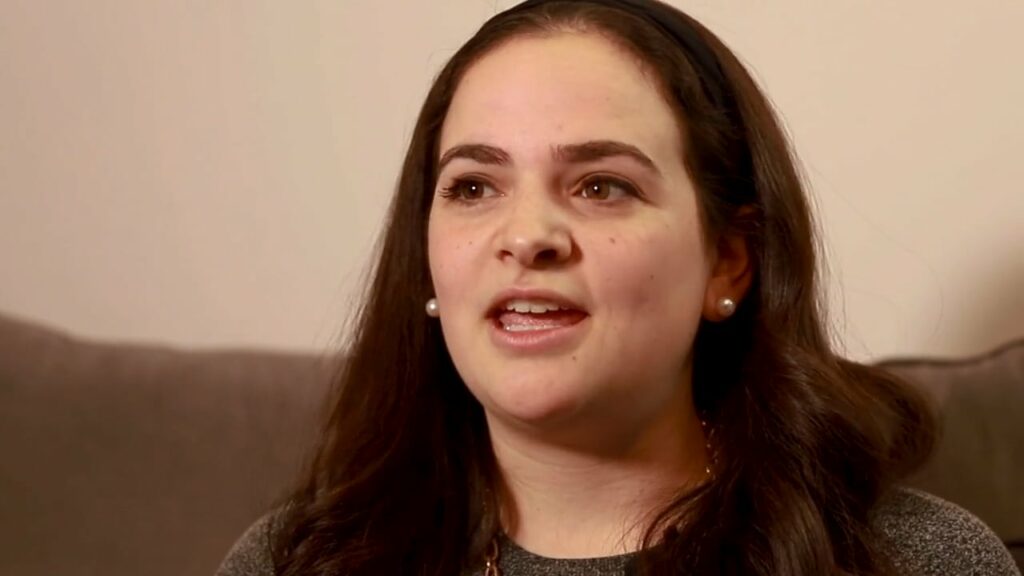Imagine if you were a witness to the Chanukah miracle. What would it have felt like if you were peeking over the Kohen’s shoulder as he lit the Menorah in the newly purified and rededicated Beis Hamikdash? Picture the emotion of the moment: the Kohen is raising the prized little jug of pure olive oil – and everyone standing there knows just what it took to discover it – and he carefully pours out each precious drop. There isn’t nearly enough to last the eight days needed to produce new oil, but the Chashmonaim have decided to do their part and use what they have.
And then, imagine the emotion when you return the next morning and see the flames still burning strongly. And the next day. And the next. Each morning, you arrive, wonder – today, still? – and then walk in and see the miracle burning right there before your eyes, the flame of Hashem’s love shining bright and strong.
Where do you think the emotion is greater? In the first scene, where everyone is experiencing the joy of having pushed themselves to the maximum, of having fought Hashem’s fight and then searched unrelentingly until Hashem blessed their efforts by leading them to that one improbable jug of pure oil?
Or the second scene, where they were zocheh to witness a supernatural wonder for seven days straight, a miracle that would inspire generations of Jews for all of history?
The answer can be found in one of the solutions suggested to the classic question of the Beit Yosef. In what has to be one of the most discussed questions in Jewish literature, Rav Yosef Caro asks why we celebrate Chanukah for eight days when the miraculous part of the story happened for only seven.
One of the answers given is that there are two types of miracles: supernatural miracles, and natural miracles. For a small jug of oil to last eight days is clearly a miracle. But to find a single, pure jug of oil hiding among all the wreckage is also a miracle. And the fact that oil can light at all – that you can stick a strip of cotton into a cup of golden liquid and create a flame that lights up the darkest space and rises to the highest Heavens – that, too, is a miracle.
What kinds of miracles do you see in your own life? At PUAH, we are blessed to see both kinds.
Supernatural miracles… How else can you explain a case like Avi’s and Rivky’s? After 14 years of infertility, years filled with desperate praying and crying and treatment after failed treatment until they’d all but given up – suddenly, finally, she becomes pregnant and gives birth to a healthy baby.
Or Chaim and Naama, whose infertility lead them to seek treatment – where they discovered that they were both carriers for a fatal genetic disease. Thanks to this discovery, they were able to undergo the appropriate genetic treatment to ensure their babies were healthy – sparing them untold pain and heartache.
Natural miracles… Reuven and Elisheva have been trying unsuccessfully for a year to have a child. They come to PUAH for a consultation, and our rabbinic advisor gives them the medical and halachic guidance they need to be able to go on to get pregnant naturally.
Ezra and Leah are both carriers for a certain genetic disease. They turn to PUAH for help, and, with proper support and guidance, the couple undergoes fertility treatment with PGD – Preimplantation Genetic Diagnosis – availing themselves of the miracle of modern medical technology in order to give birth to a healthy baby.
Which of these stories are bigger miracles? Which ones inspires a greater level of emotion, awe and gratitude? Like our witnesses to the Chanukah story above, we would venture to guess that the answer is: both of them.
One story may make for more breathtaking headlines. One may be billed as “an absolute miracle!”
But Chanukah is eight days, not seven. And every single baby that is born to one of our couples at PUAH is a miracle, whether Hashem brought about the miracle through natural or supernatural means.
Every single baby that is born to one of our couples at PUAH is a miracle. And in this season of miracles, may we be zocheh to see all of the miracles around us – great and small, revealed and hidden – that make up the fabric of our lives
Those struggling with infertility often feel completely alone. This Chanukah, we’re sharing stories and support from PUAH couples, rabbis and doctors.You can watch our full video series here. It’s our hope that sharing these journeys and insights will spark conversations and spread the message that there is always hope. Like our Chanukah candles, a little bit of light goes a very long way.
For more information and support, call the PUAH CareLine at 718.336.0603












